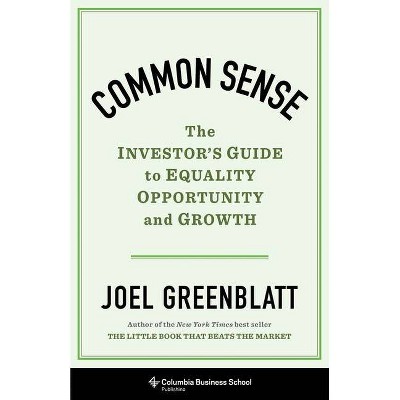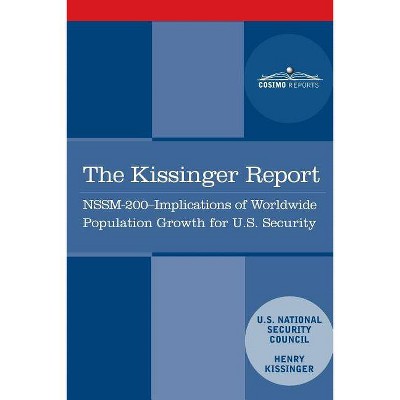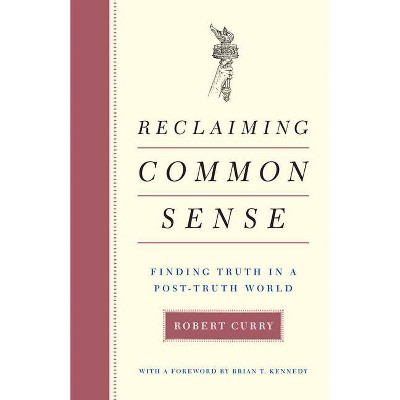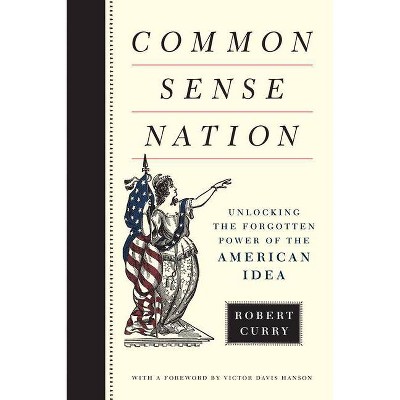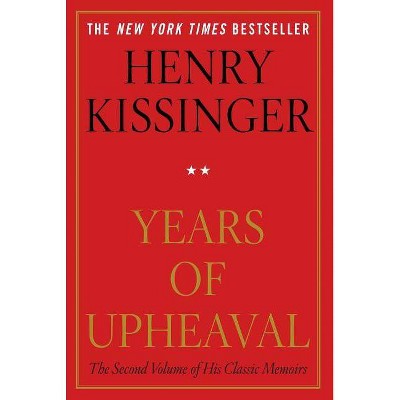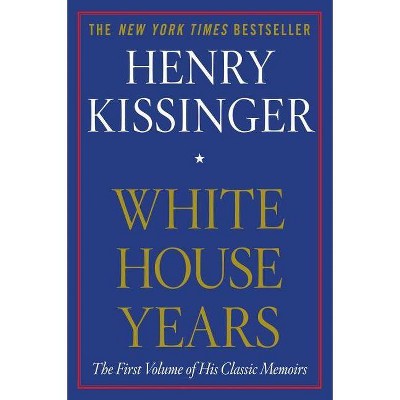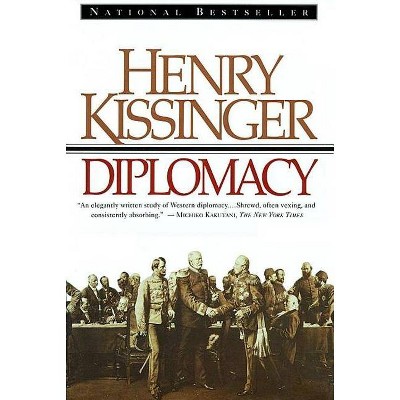Teaching Common Sense - by Linda Kulman & Henry Kissinger (Hardcover)
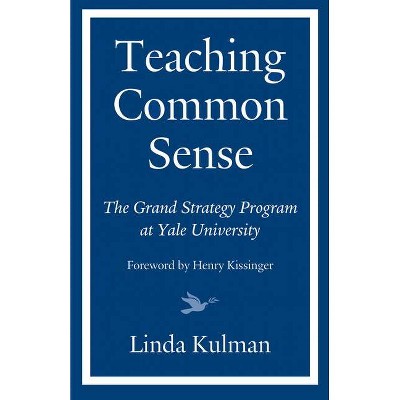
Similar Products
Products of same category from the store
AllProduct info
<p/><br></br><p><b> About the Book </b></p></br></br> "For fifteen years, the Grand Strategy program has been cultivating leadership skills of undergraduates and graduate students of Yale University. In Linda Kulman's compelling book, we learn about this remarkable program from the inside, sharing the stress of the 'murder boards,' the revelation of applying the classics to current geopolitical situations, and the crucial importance of fast decision-making under duress. Teaching Common Sense weaves together on-site reporting, archival research, and original survey data into an intellectual history of the Grand Strategy program"--Page [4] of book jacke<p/><br></br><p><b> Book Synopsis </b></p></br></br>How is critical thinking taught? How will the next generation cope with an ever-changing and increasingly complex world?<br><p><br>These are questions that the Grand Strategy program at Yale seeks to address. The Brady-Johnson Program in Grand Strategy seeks to revive the study and practice of grand strategy by devising methods to teach that subject at the graduate and undergraduate levels, by training future leaders to think about and implement grand strategies in imaginative and effective ways, and by organizing public events that emphasize the importance of grand strategy.<br><p><br>The program defines "grand strategy" as a comprehensive plan of action, based on the calculated relationship of means to large ends. Never an exact science, grand strategy requires constant reassessment and adjustment. Flexibility is key. Traditionally believed to belong to and best-developed in the politico-military and governmental realms, the concept of grand strategy applies--and ISS believes is essential--to a broad spectrum of human activities, not least those of international institutions, non-governmental organizations, and private businesses and corporations.<br><p><br>For fifteen years, the Grand Strategy program has been cultivating leadership skills of undergraduates and graduate students of Yale University. In Linda Kulman's compelling book, we learn about this remarkable program from the inside, sharing the stress of the "murder boards," the revelation of applying the classics to current geopolitical situations, and the crucial importance of fast decision-making under duress. Teaching Common Sense weaves together on-site reporting, archival research, and original survey data into an intellectual history of the Grand Strategy program.<p/><br></br><p><b> From the Back Cover </b></p></br></br><br>The Grand Strategy program at Yale was founded in 2000 by Professors John Lewis Gaddis, Yale's Robert A. Lovett Professor of Military and Naval History who became director of the program; Paul M. Kennedy, the university's J. Richardson Dilworth Professor of British History and founding director of Yale's International Security Studies Program (ISS); and Charles Hill, a practitioner professor who distinguished himself as a career Foreign Service officer before coming to Yale to teach full time.<br><p><br>In 2006, Nicholas F. Brady (Yale, '52) and Charles Johnson (Yale, '54) endowed the Grand Strategy program in the belief that it was already filling an enormous void in American higher education. "If you don't teach leadership and people aren't exposed to it," Johnson wrote, "they don't even know what they missed."<br><p><br>Now Grand Strategy is as recognizable to Yale students as the letter Y and the school's bulldog mascot, Handsome Dan. By offering students a new way of viewing the world around them, its curriculum has proven formative for the more than five hundred men and women who have completed it. Under the leadership of its new director, Professor Elizabeth H. Bradley, who holds the recently established Brady-Johnson Professorship in Grand Strategy, the program is poised for many more years of producing effective, knowledgeable, and versatile leaders.<p/><br></br><p><b> Review Quotes </b></p></br></br><br><br>"The best course in America . . ."<br>- David Brooks, <i>New York Times</i><br><p/><br></br><p><b> About the Author </b></p></br></br>Linda Kulman, an award-winning journalist and author, was a senior writer at <i>U.S. News & World Report</i>, where she covered politics, consumer culture, and religion. Her work has been anthologized in <i>Perspectives on the Passion of the Christ: Religious Thinkers and Writers Explore the Issues Raised By the Controversial Movie and Ending Government Bailouts</i>, and her essay "Land," on earth's disappearing natural resources, anchored <i>National Geographic's</i> acclaimed <i>Visions of Paradise</i>.<br><p><br>Kulman, a graduate of Columbia University's Graduate School of Journalism, has contributed to several publications, including the <i>Huffington Post, National Geographic</i>, and the <i>Washington Post</i>. She has written a number of nonfiction books, including two <i>New York Times</i> bestsellers, for some of the leading political and cultural figures of our time. <i>Teaching Common Sense</i> weaves together on-site reporting, archival research, and original survey data.<br><p><br>Kulman lives in Washington, D.C., with her family.<br>
Price History
Cheapest price in the interval: 21.49 on October 22, 2021
Most expensive price in the interval: 21.49 on December 20, 2021
Price Archive shows prices from various stores, lets you see history and find the cheapest. There is no actual sale on the website. For all support, inquiry and suggestion messagescommunication@pricearchive.us

